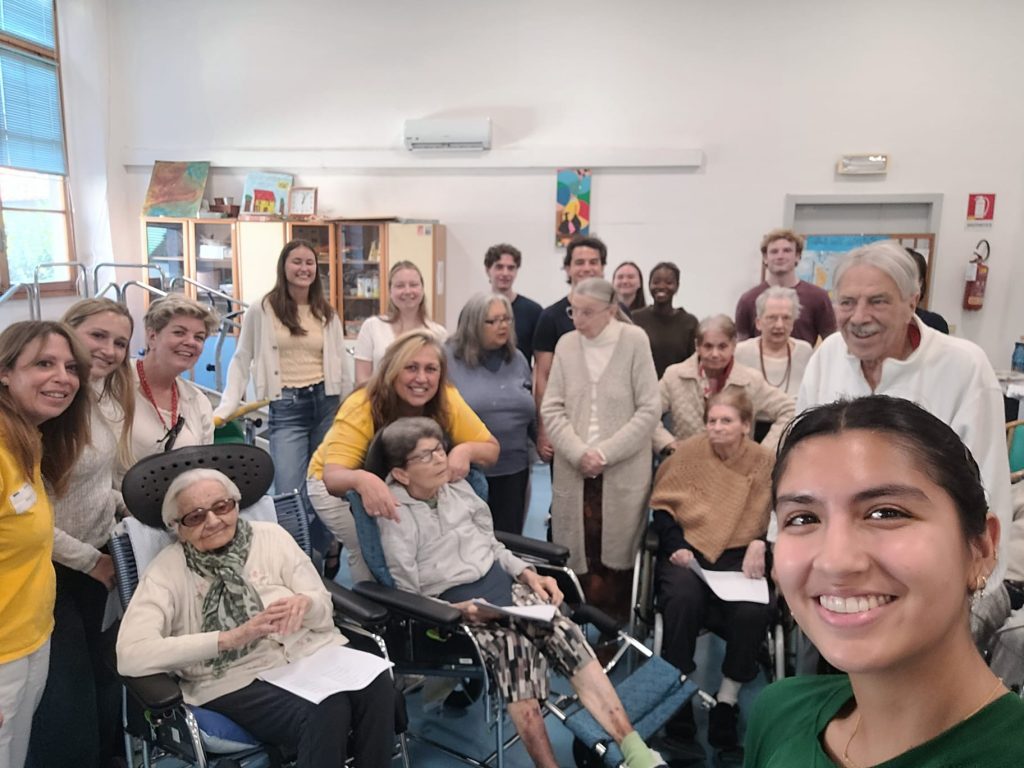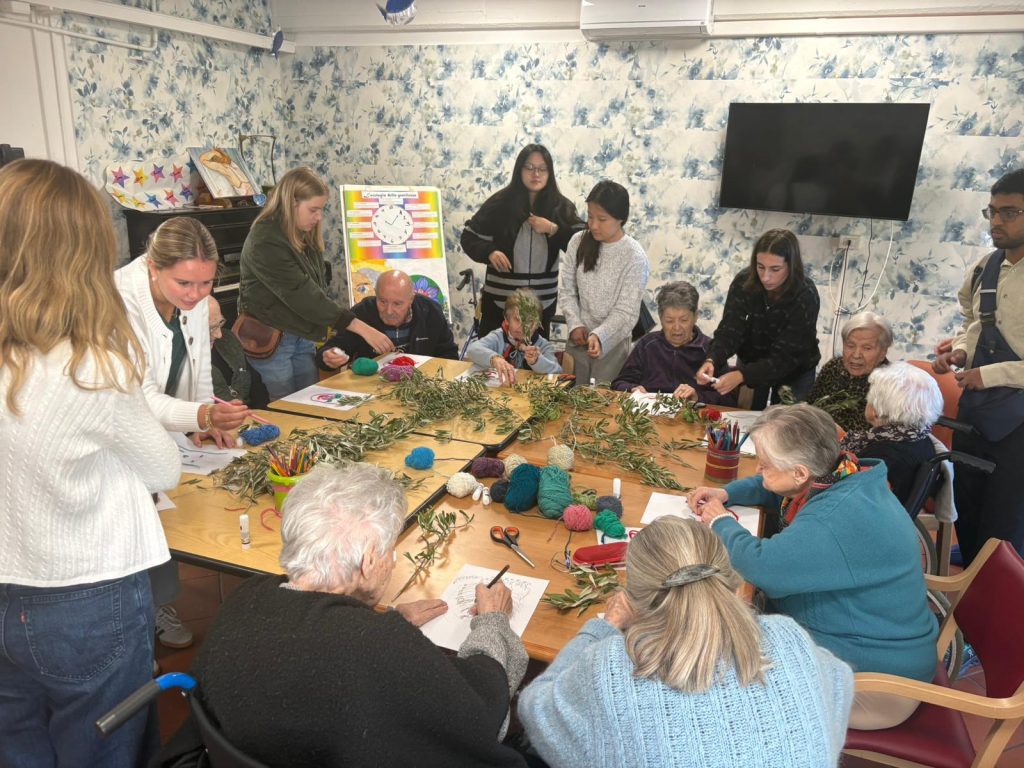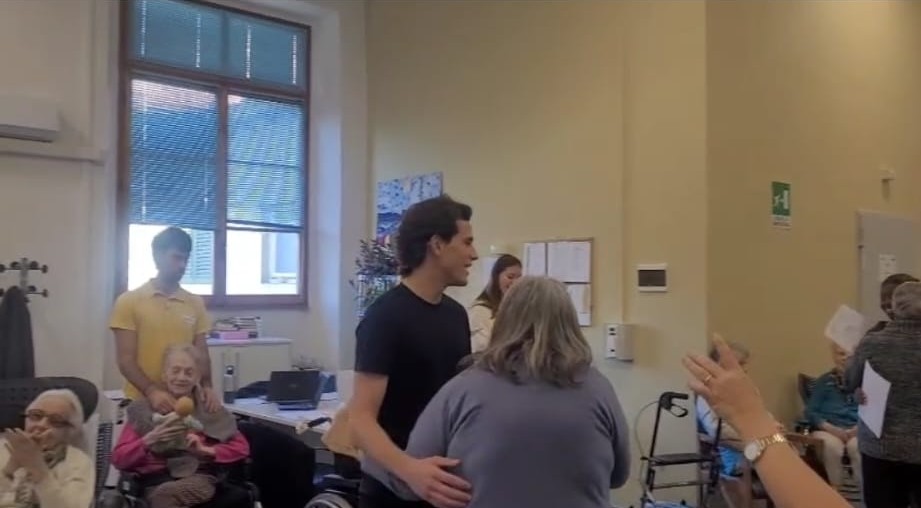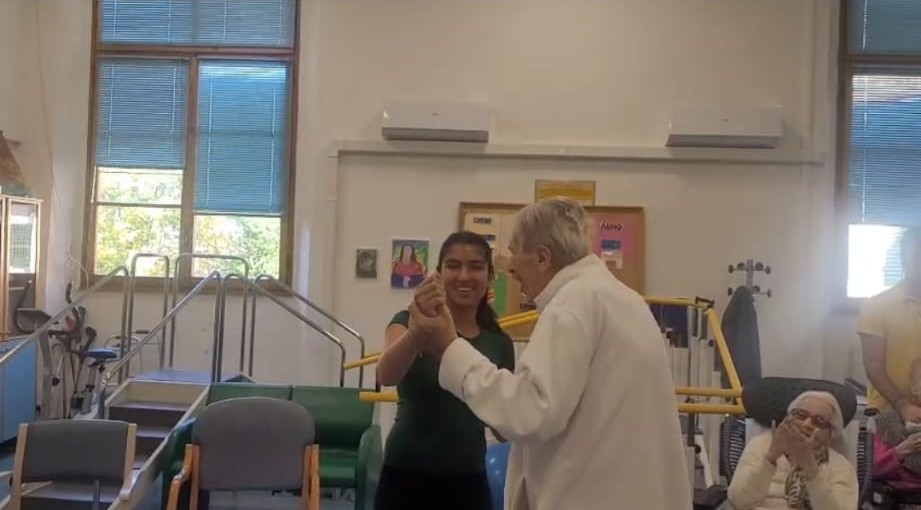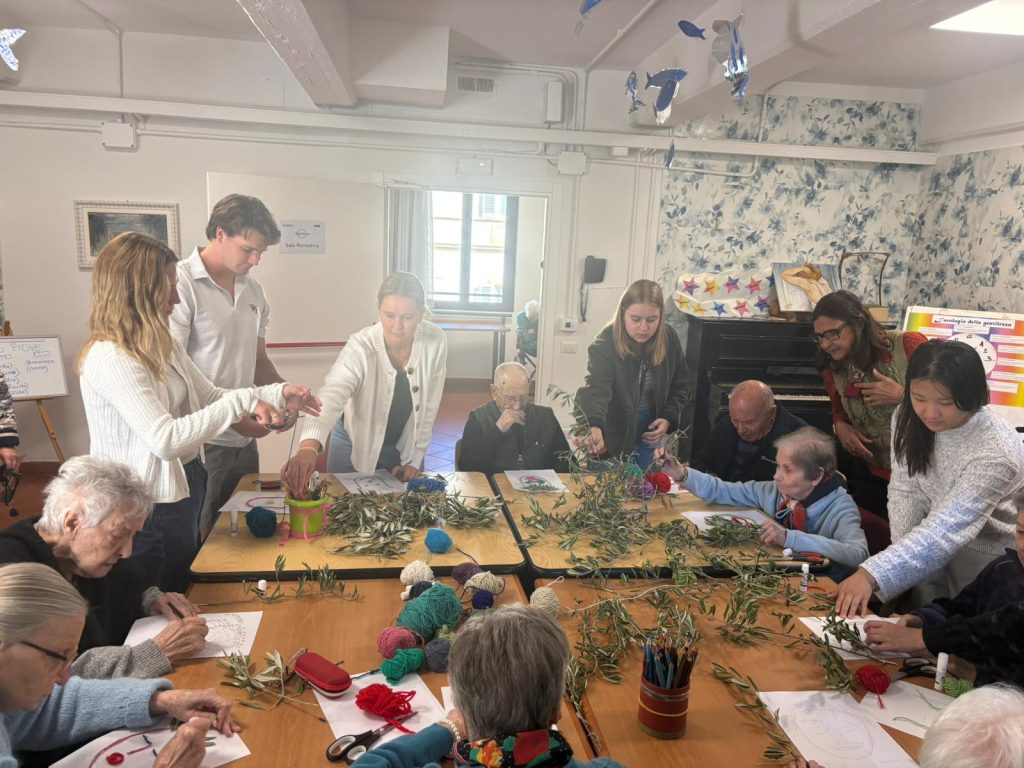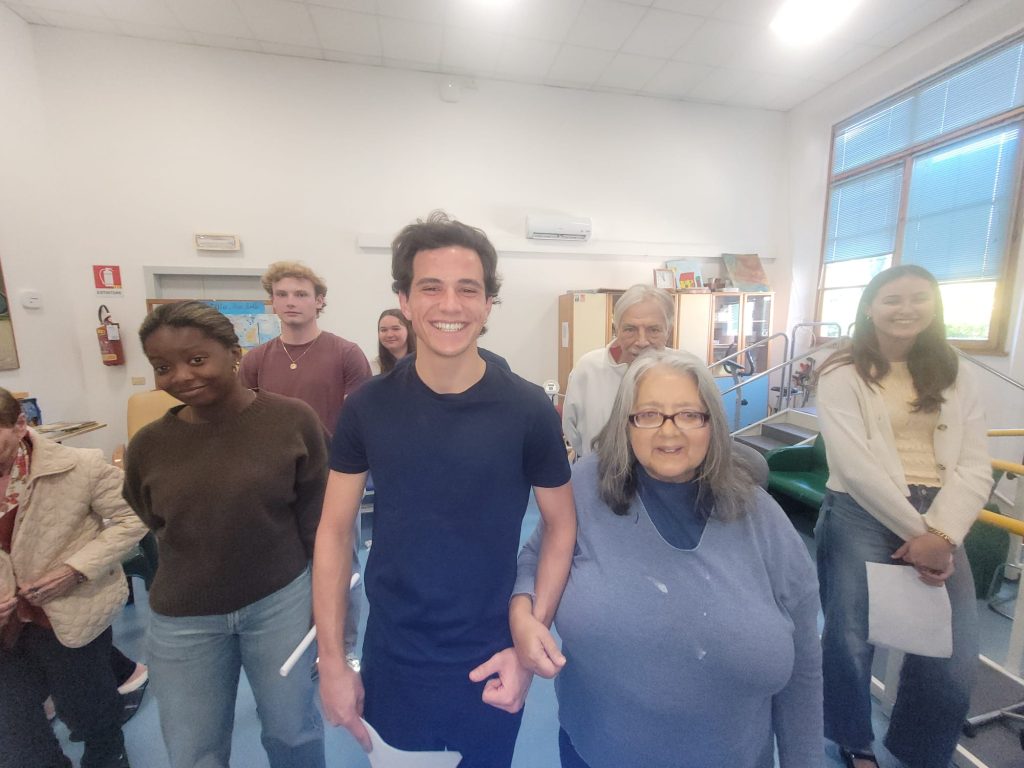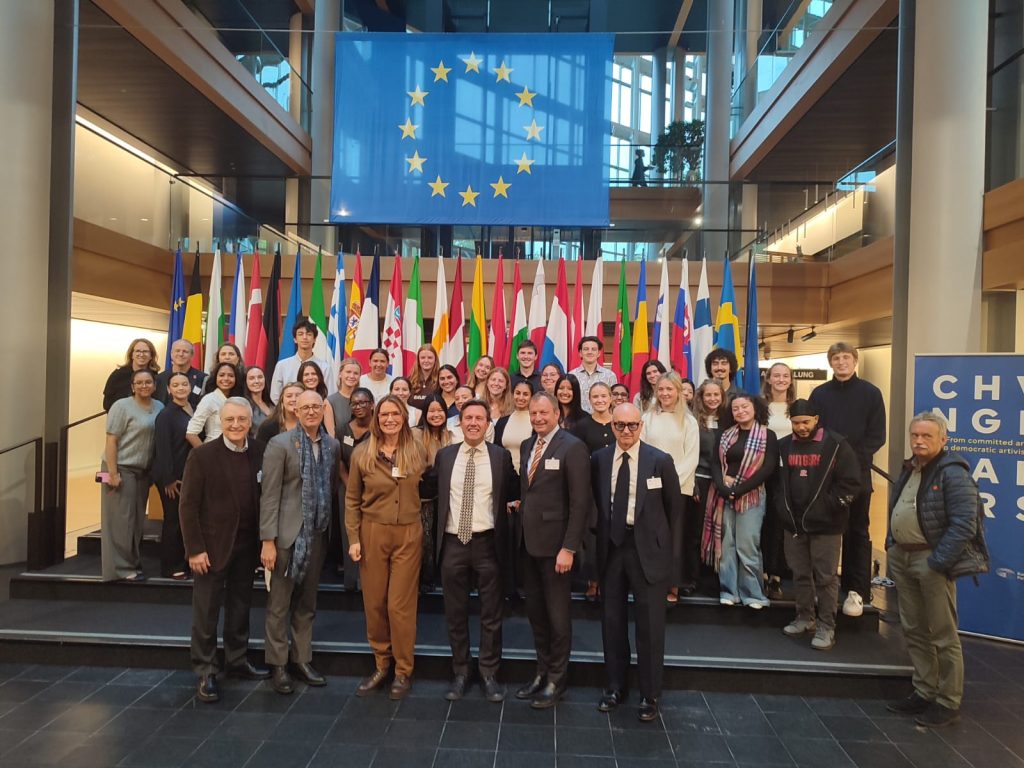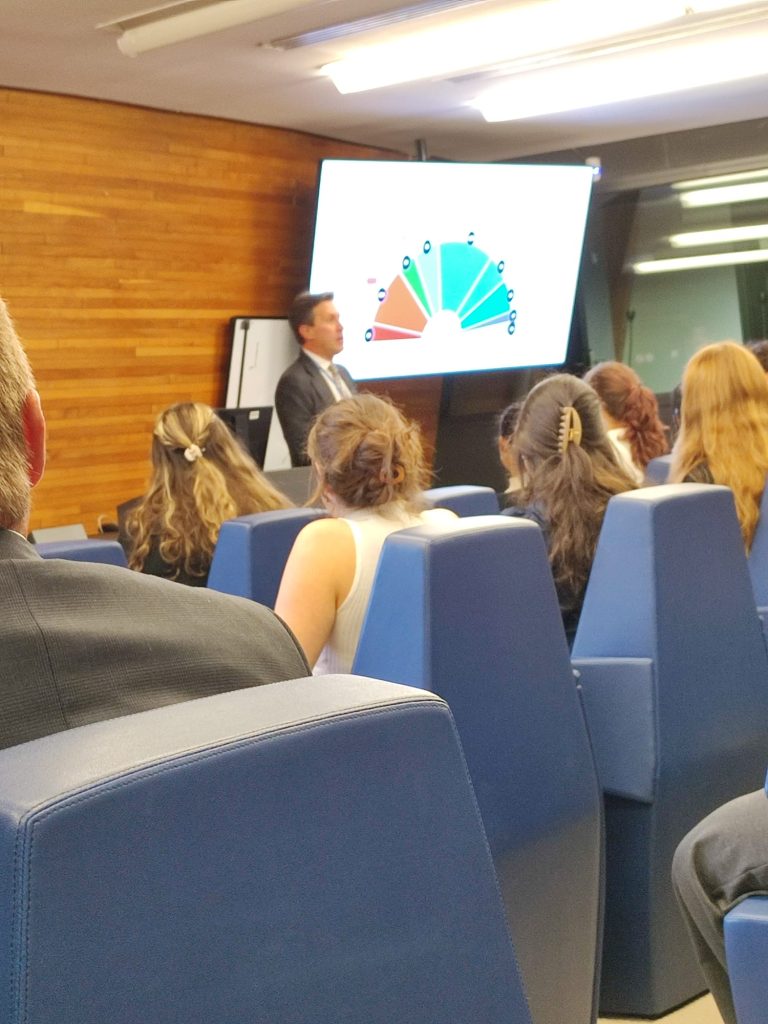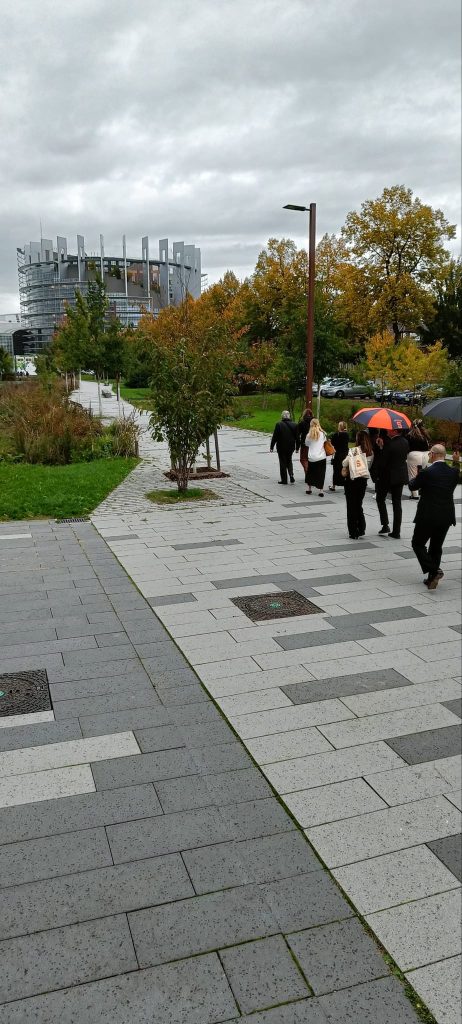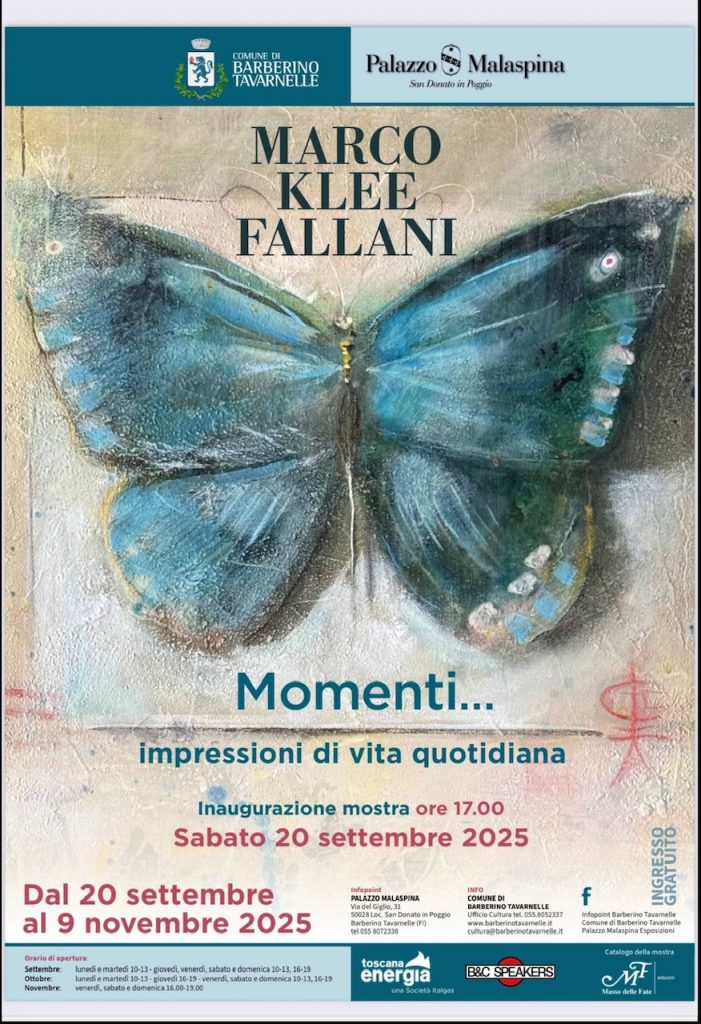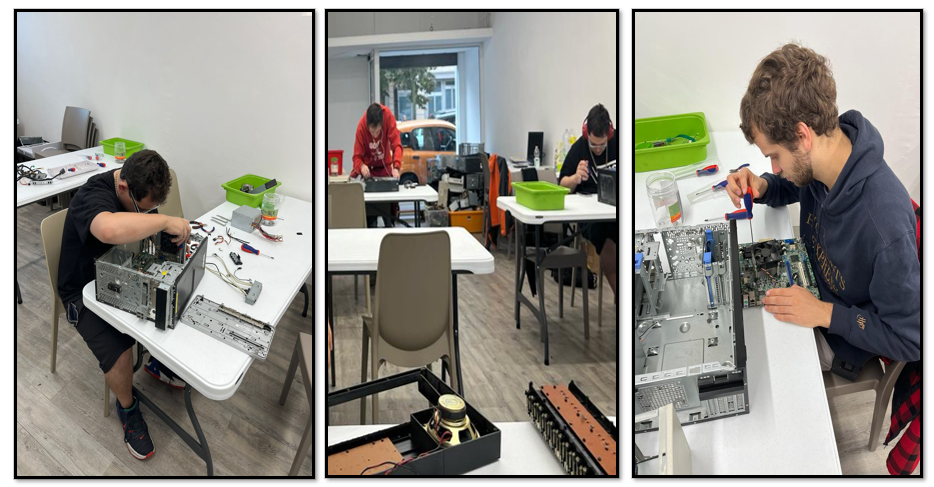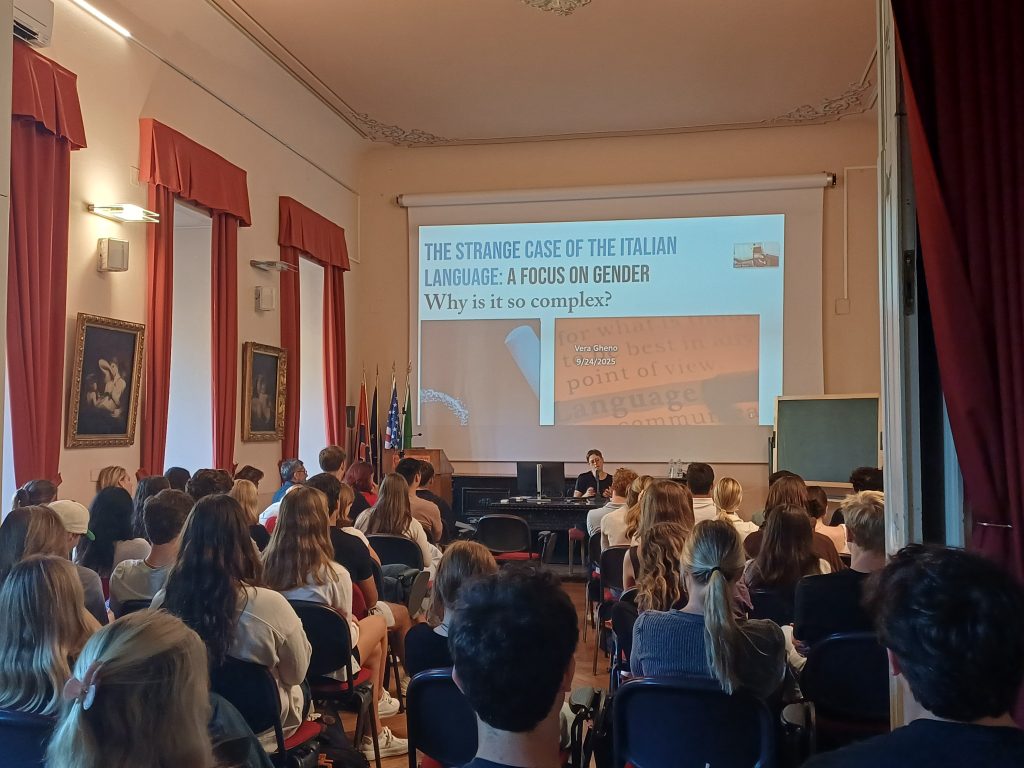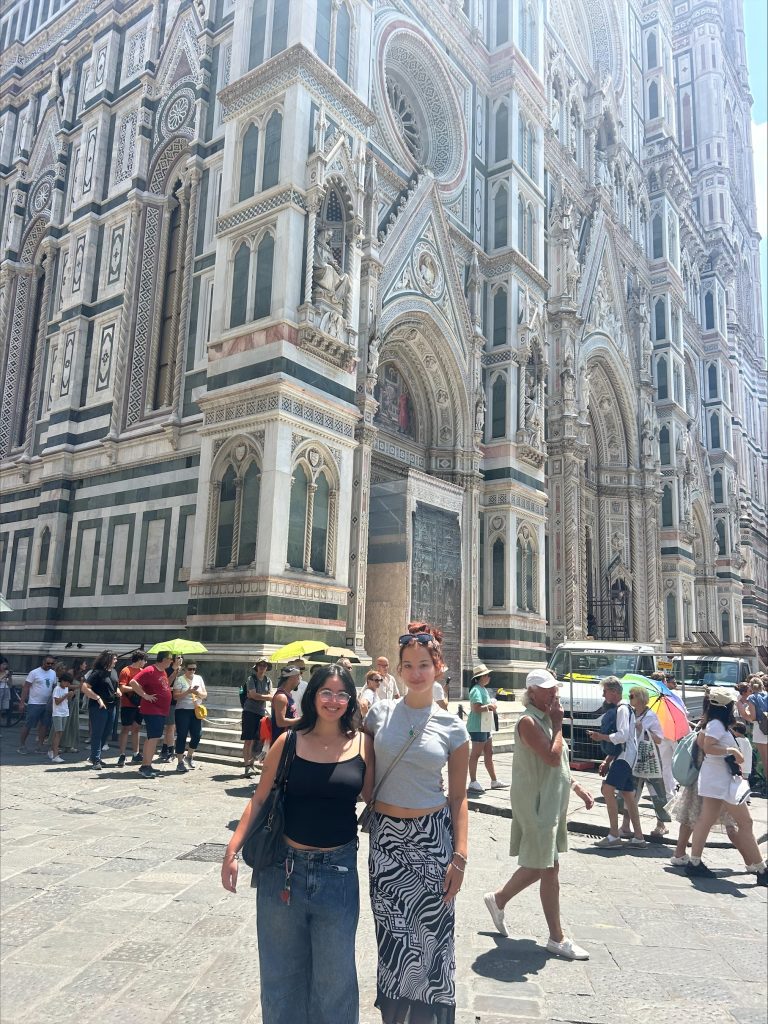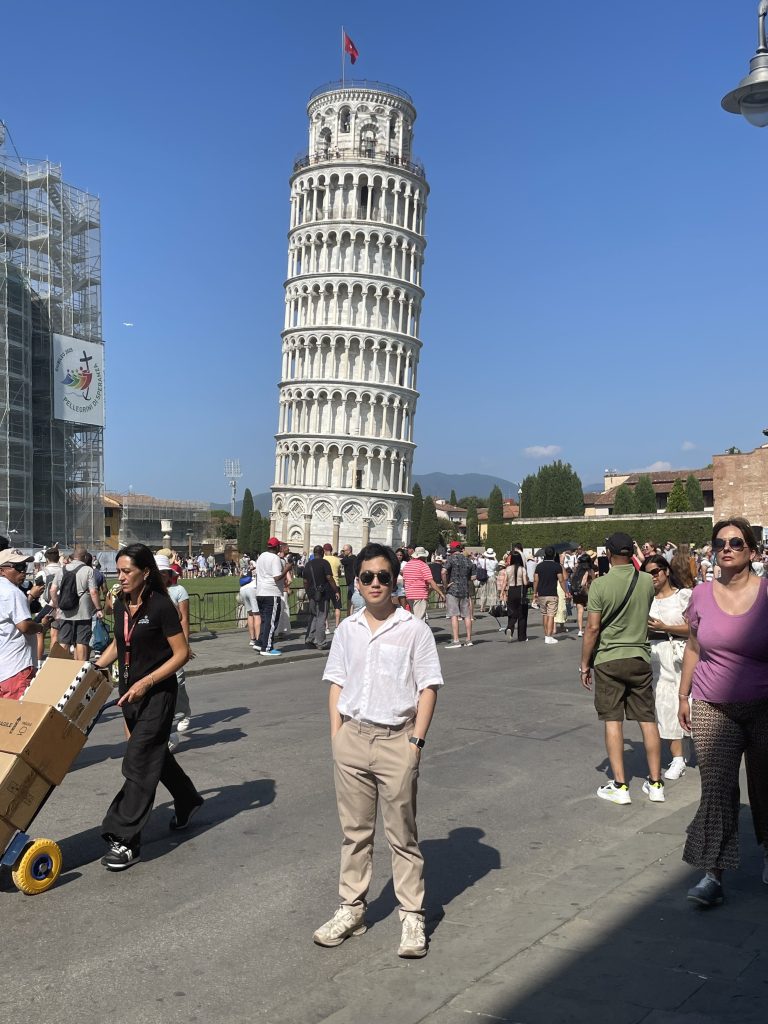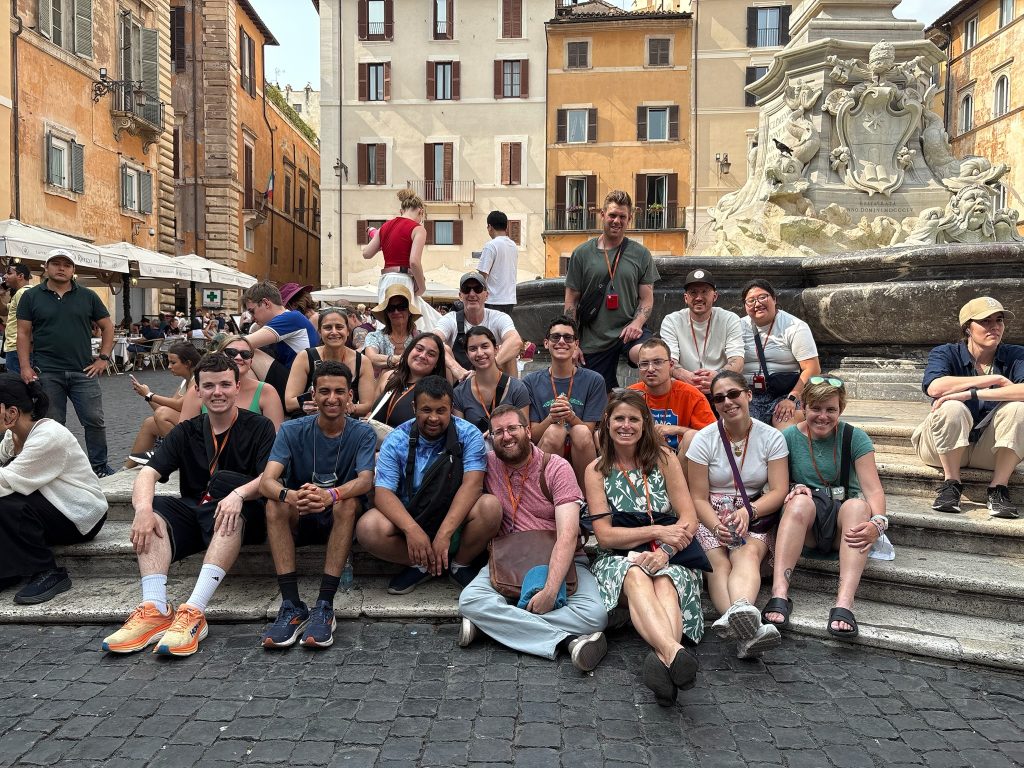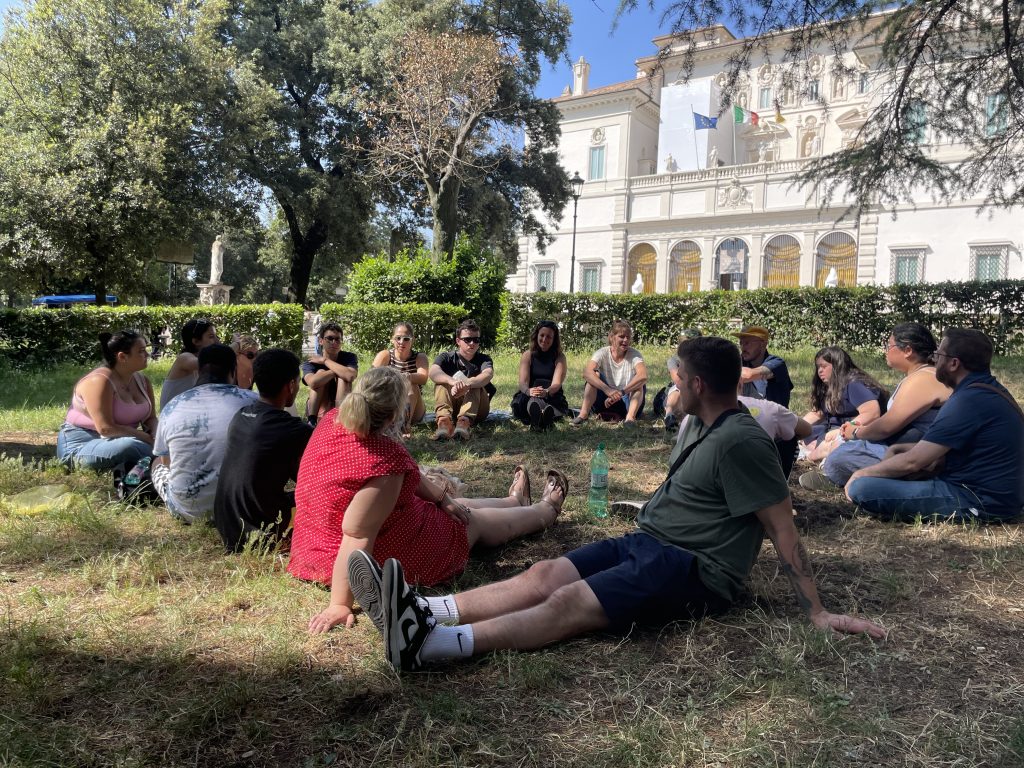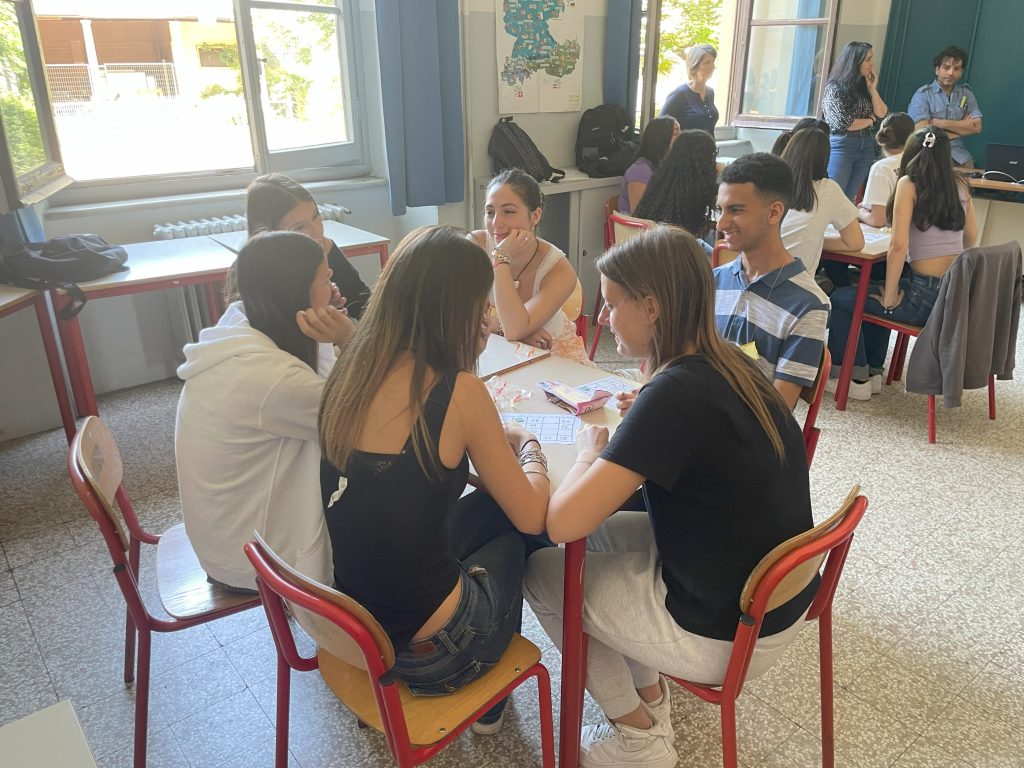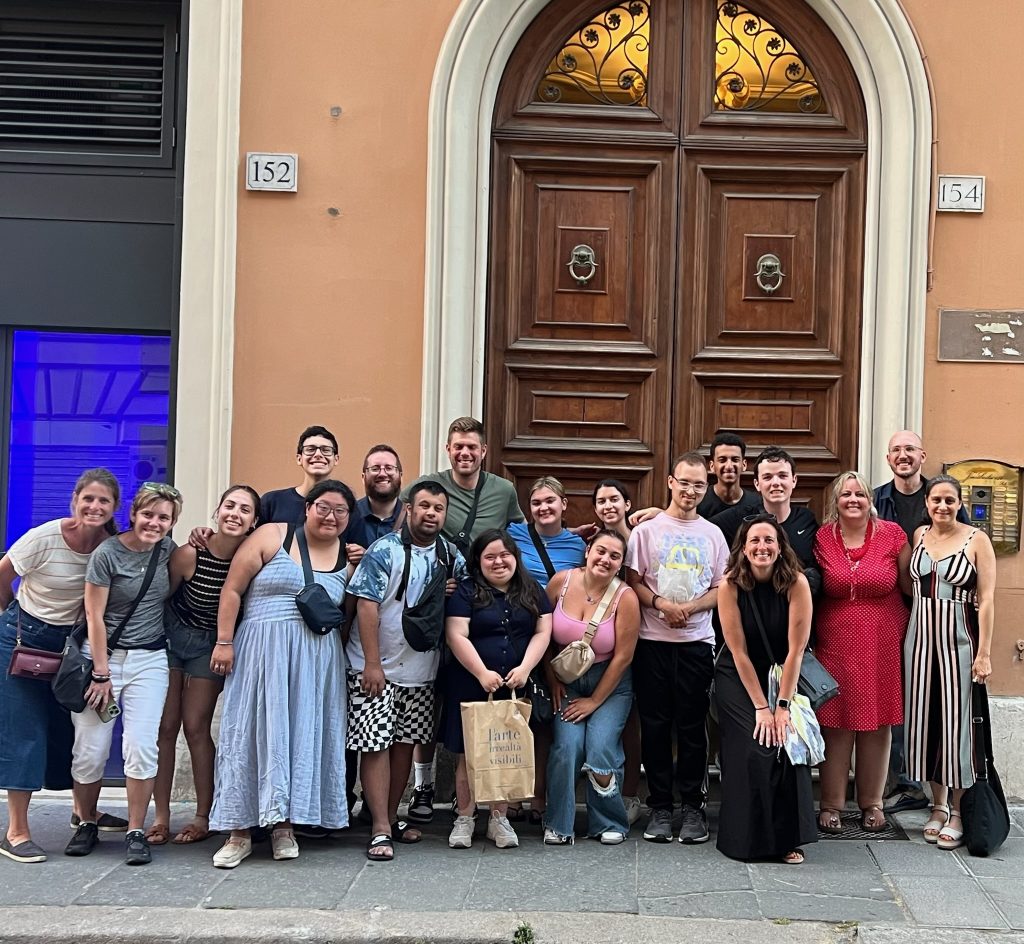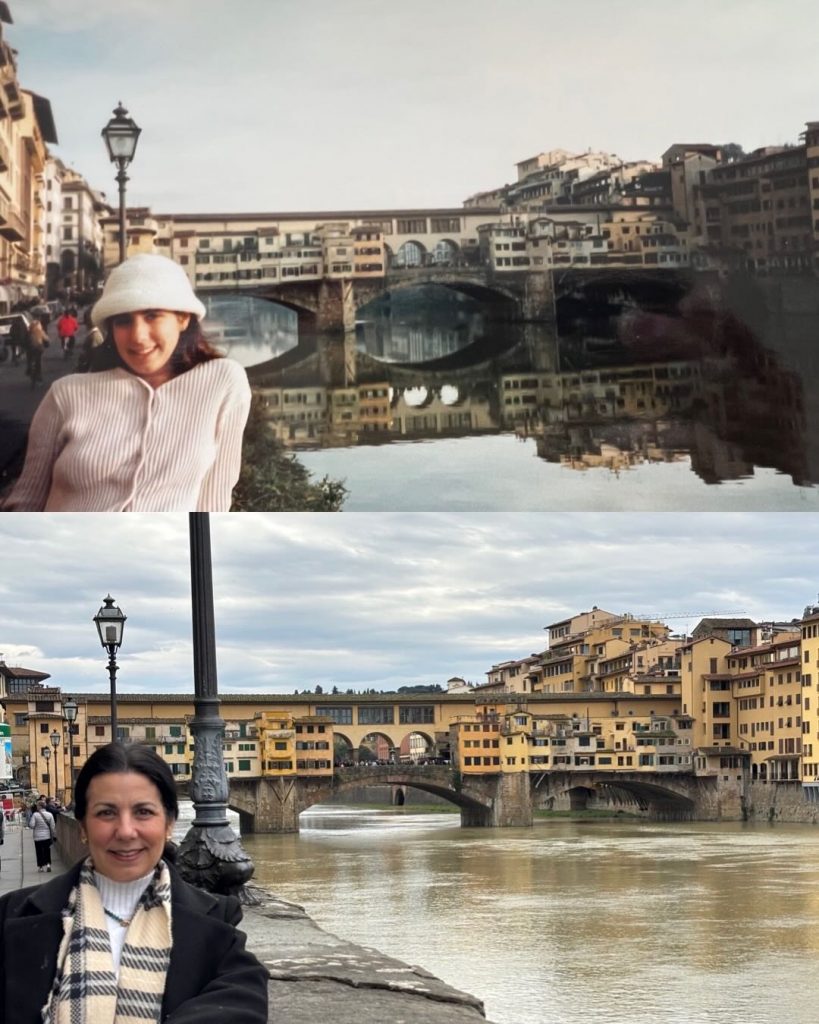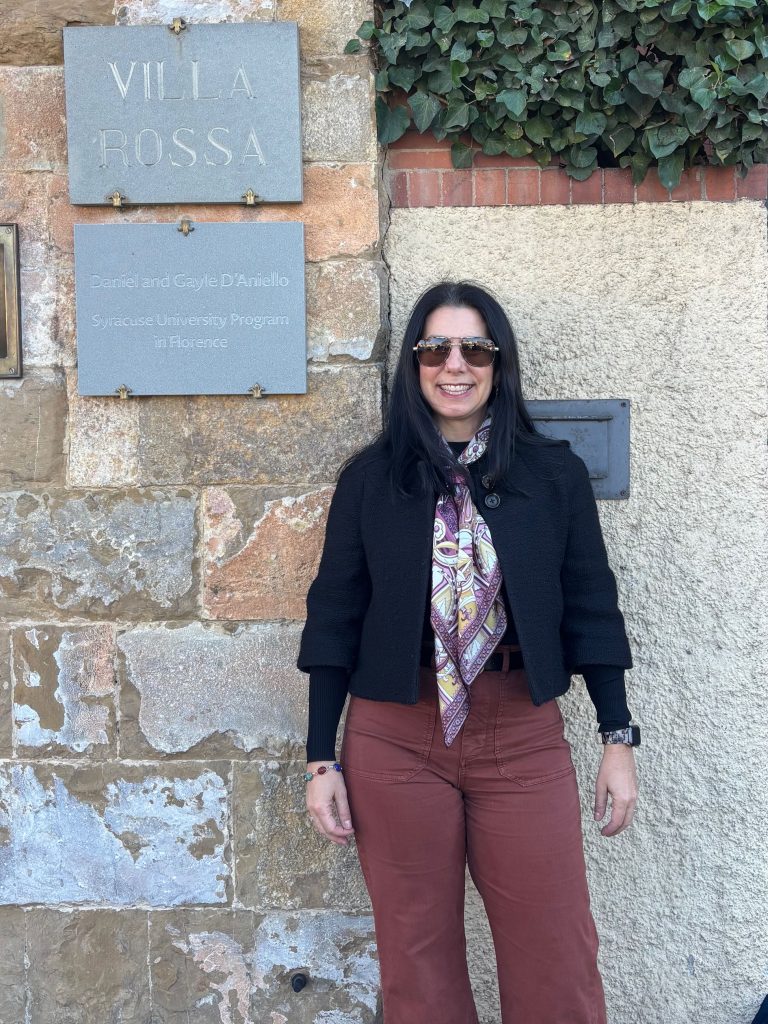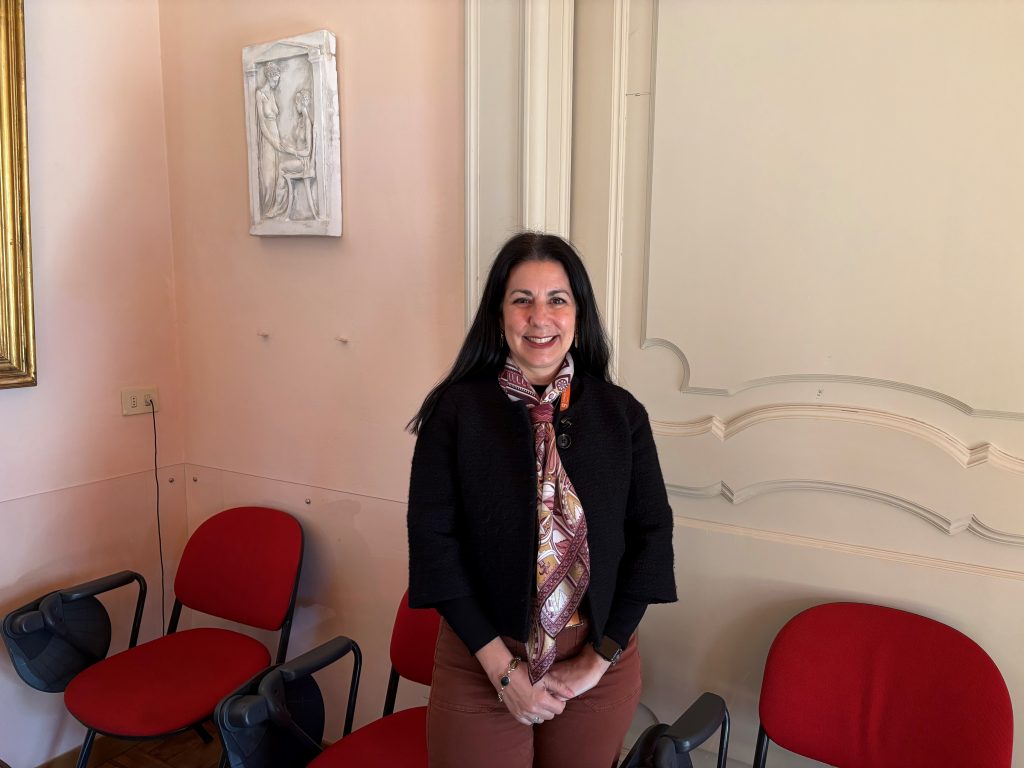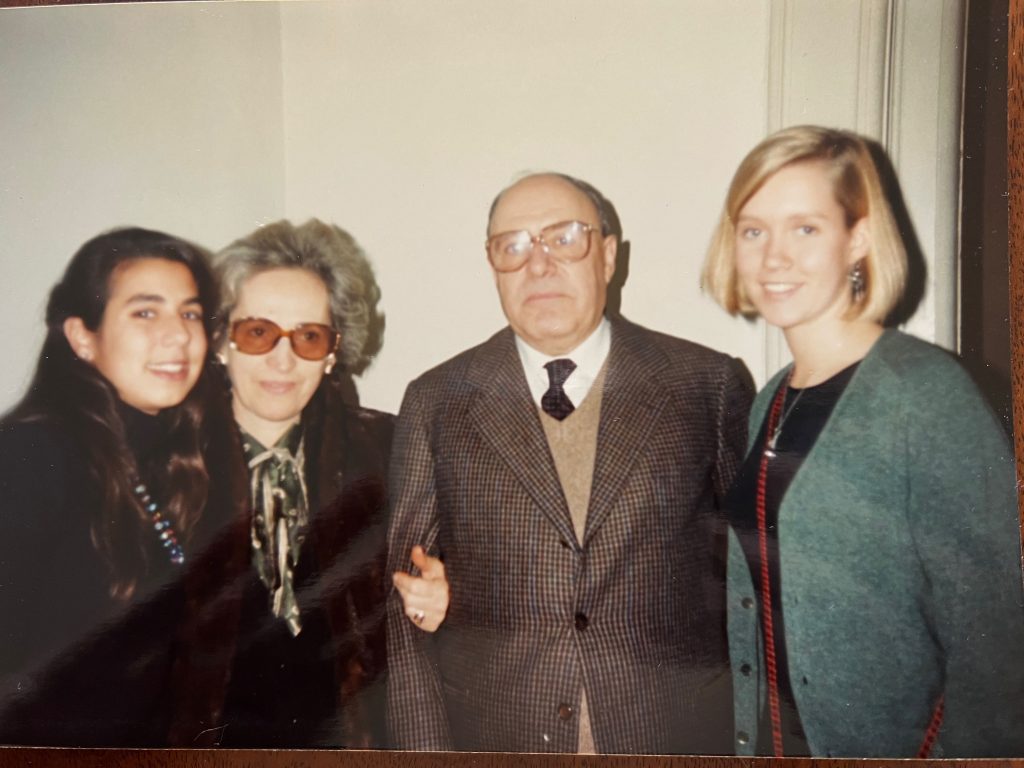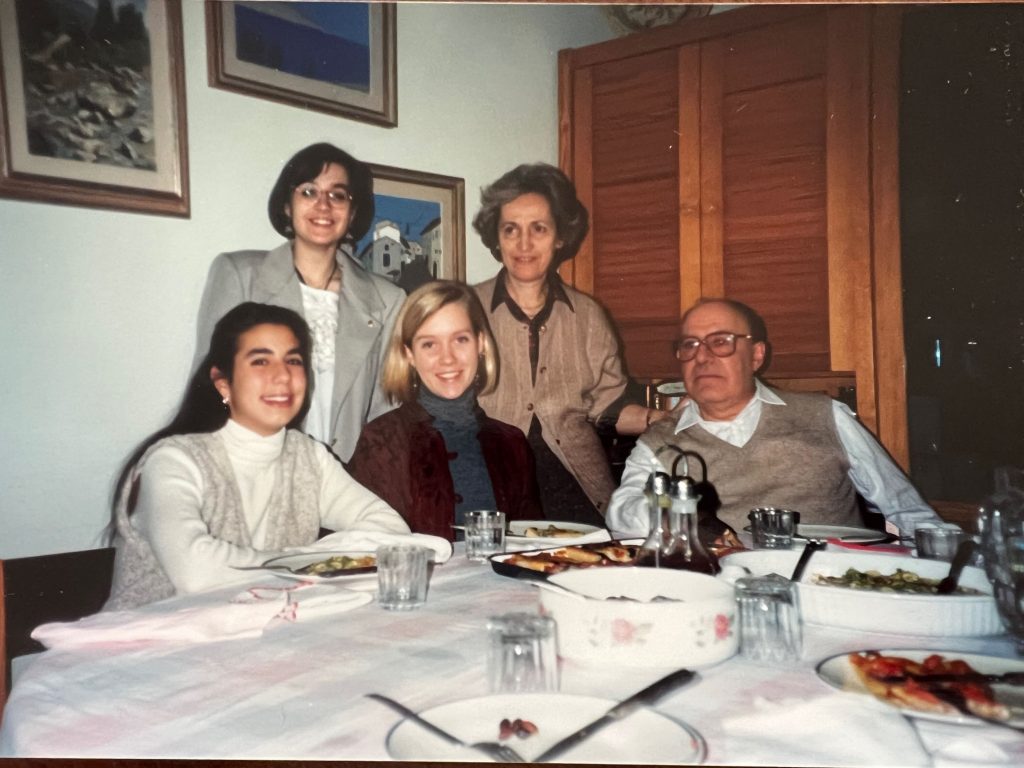By Michelle Tarnopolsky
Last spring, Syracuse Florence welcomed a visitor whose presence bridged centuries of history and affection. Licia Guerrini D’Ambrosio, daughter-in-law of Giovanni Guerrini—the devoted majordomo to Countess Bona Gigliucci—returned to the Villa Rossa for the first time in over four decades. Her visit, guided by Director Sasha Perugini, was deeply emotional, a homecoming steeped in memory and legacy.
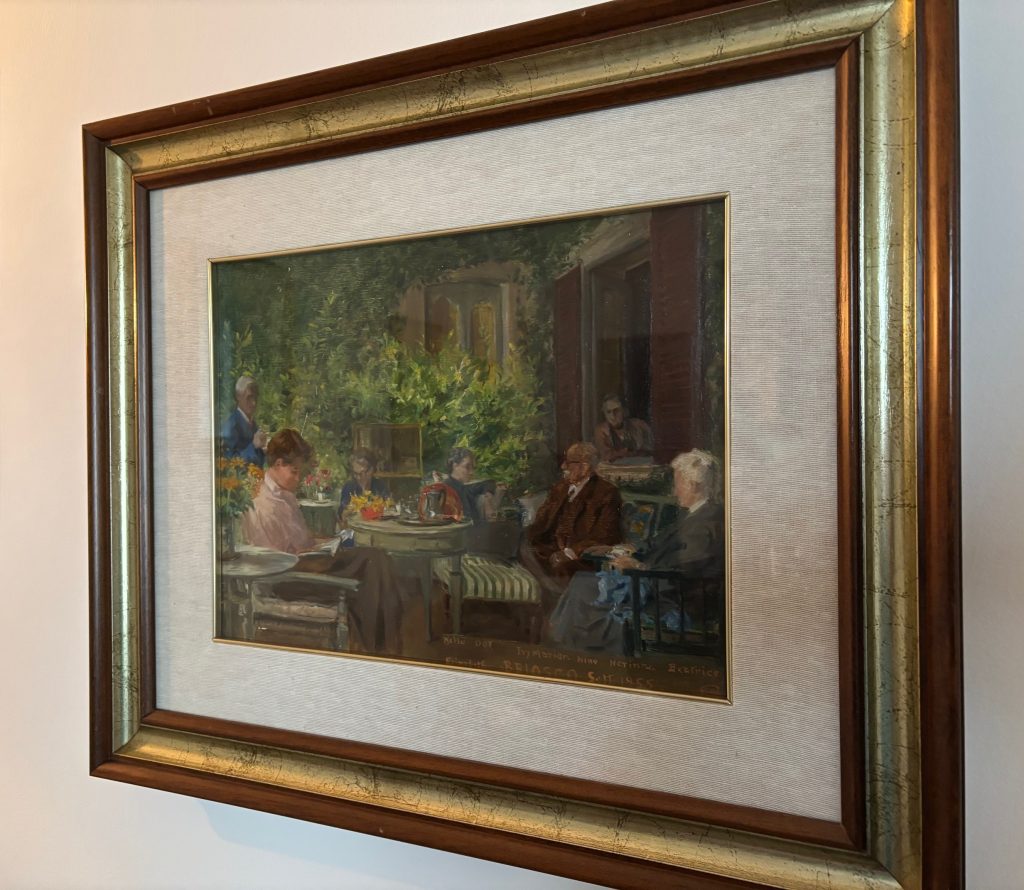
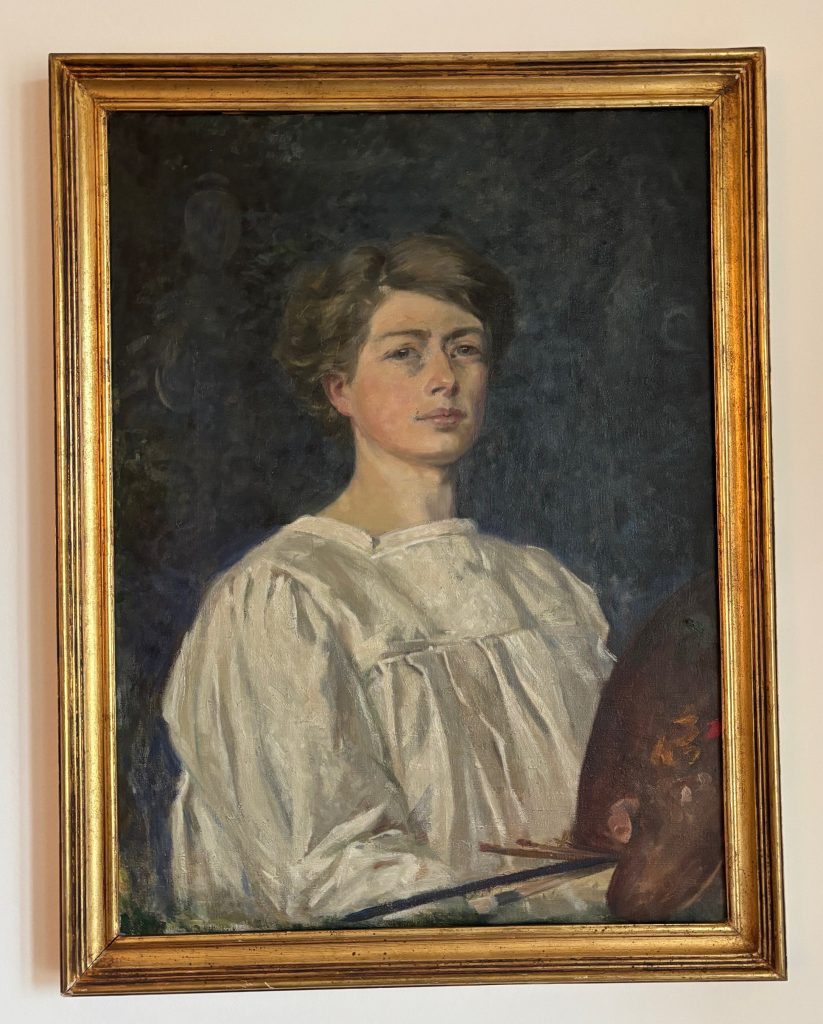
“I live in my memories,” Licia began, seated in her Florence home surrounded by paintings by the Countess herself. Before she returned to visit the Villa Rossa, we visited her and her daughter Simona at home. Licia’s story unfolded like a tapestry, woven with love, loyalty, and the quiet dignity of a life lived in service and kinship.
Villa Rossa, built in 1892 by Countess Bona’s father Mario, was more than a residence—it was a sanctuary of upbringing and tradition. Licia’s three children grew up playing in its gardens every Sunday, embraced by the Countess as if they were her own. Her husband Paolo was just two months old when his parents, Giovanni and Lea Guerrini, moved into the mezzanine apartment of the villa. Giovanni, affectionately known as “Babbo Nanni,” served the Countess for 58 years, managing staff, training Syracuse café workers, and overseeing the gardener—Sergio Landi’s father.
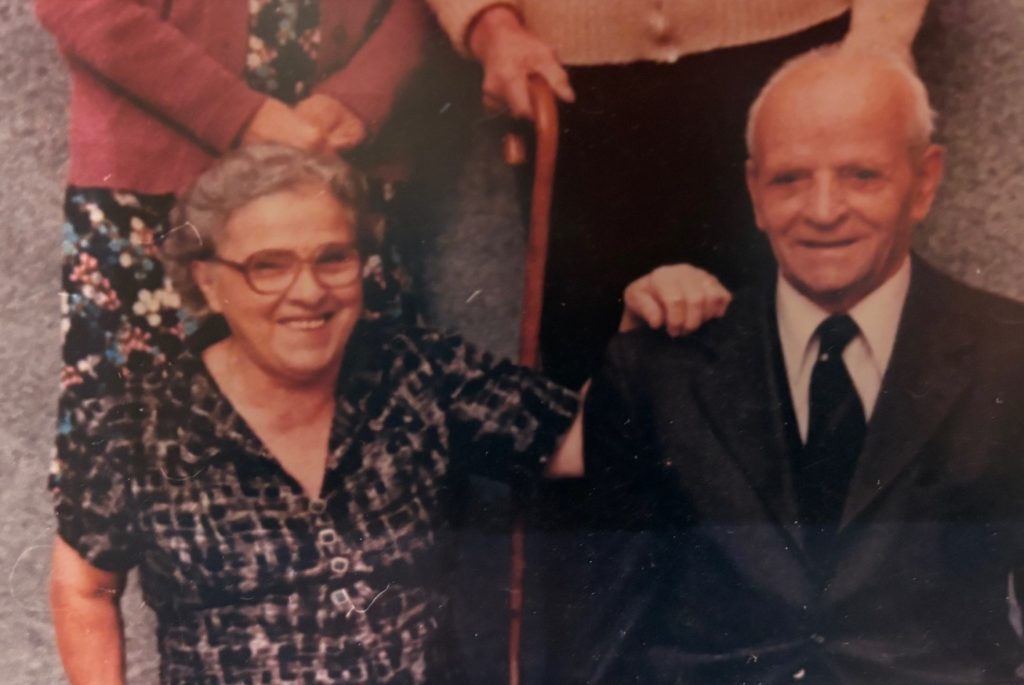
Room 35, now a classroom, once echoed with the brushstrokes of Bona’s paintings. “How marvelous!” Licia exclaimed upon learning of its new purpose. The transformation of the villa into an academic haven did not erase its soul—it enriched it.
Prompted by a newspaper article about Daniel D’Aniello’s generous $10 million donation to Syracuse Florence, Licia felt compelled to return. Her visit revealed layers of history: the original café space was once the servant’s kitchen, and during WWII, an English commander lived in an apartment in the area of our new café, helping protect Allied soldiers. The villa was spared from bombing, a testament to its role in resistance.
Licia’s recollections painted a vivid portrait of the Gigliucci family. Summers in Fermo, a house with views from mountains to sea, and the heartbreak of losing it after Bona’s death due to financial mismanagement. Despite wealth, the family lived simply—reflected in the modest tombs of Count Mario and Edith Mosley, restored by Syracuse Florence.
Bona’s affection for the Guerrini family ran deep. She was godmother to Licia’s daughter Simona, attended her baptism, and often sent her driver Guido to take the family to the beach. Giovanni, ever meticulous, ensured every piece of silver destined for England was accounted for—“not even a teaspoon could be missing,” Licia laughed.
Bona’s brother Donatello (“Conte Nello”) was a witness at Licia and Paolo’s wedding in 1961. He read a moving letter dedicated to them at the wedding banquet, whose guests included the Countess.
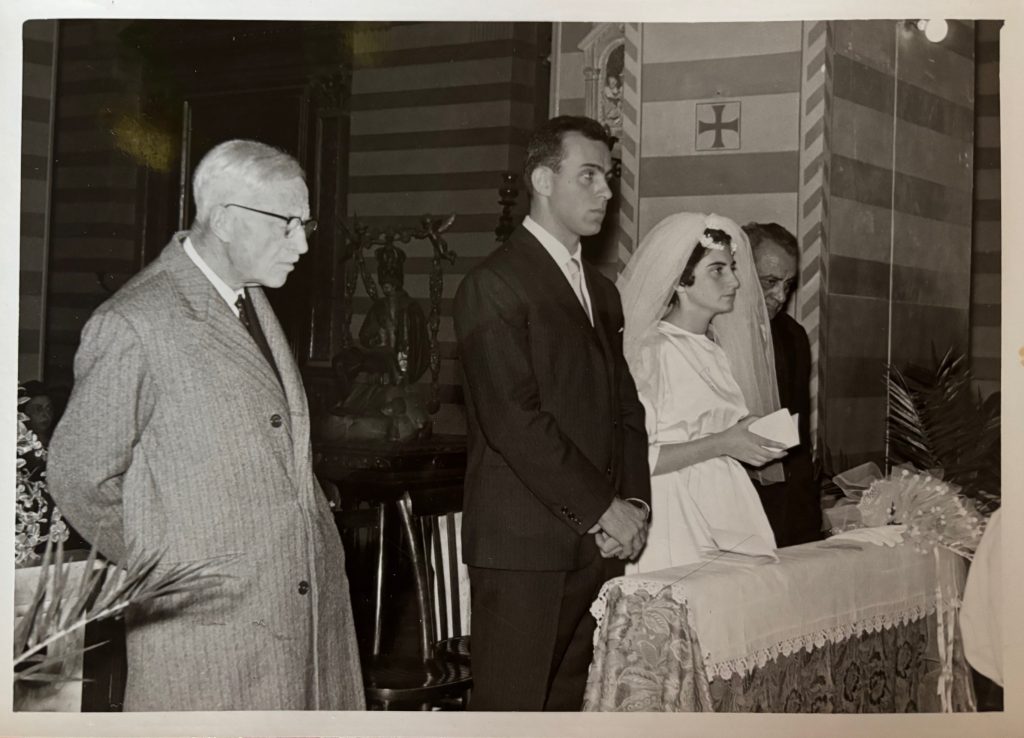
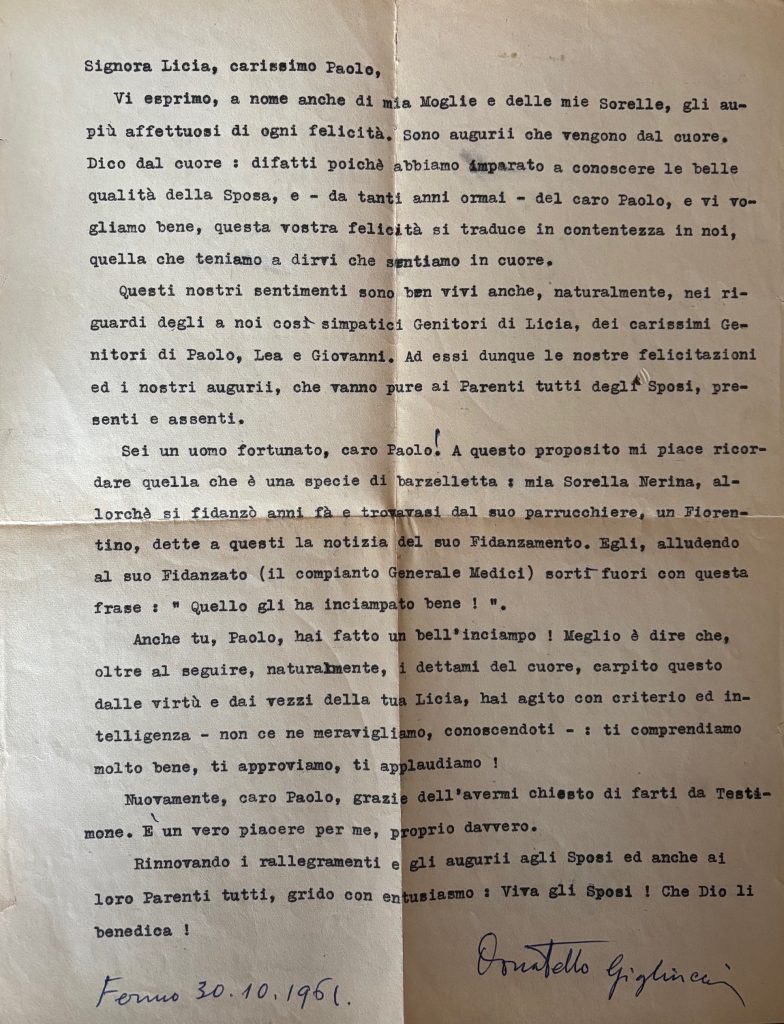
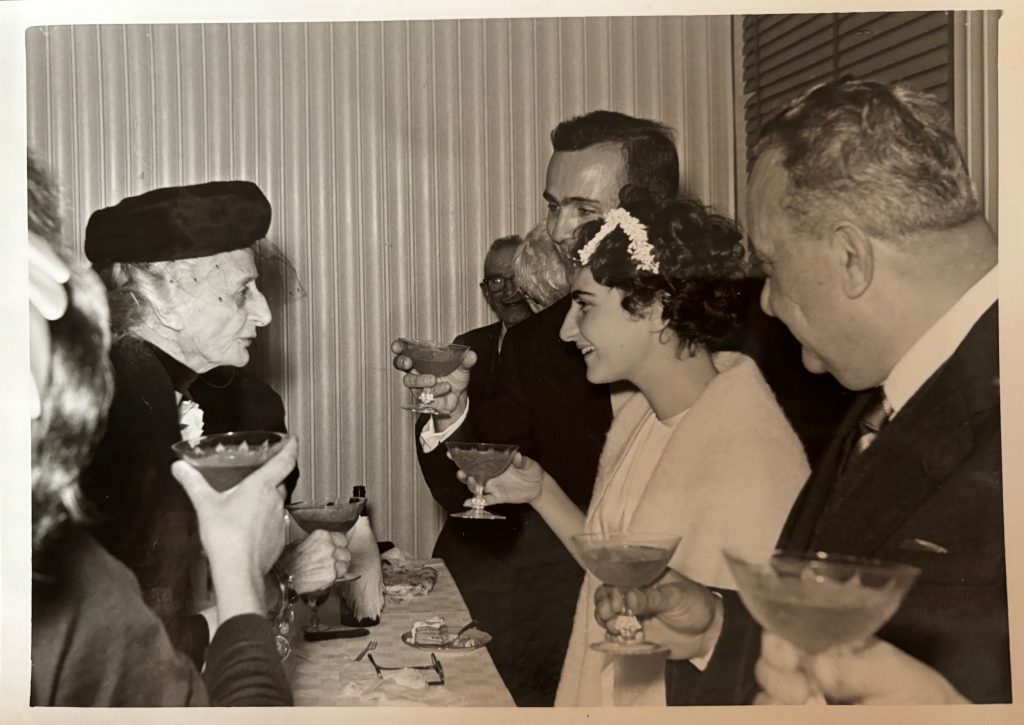
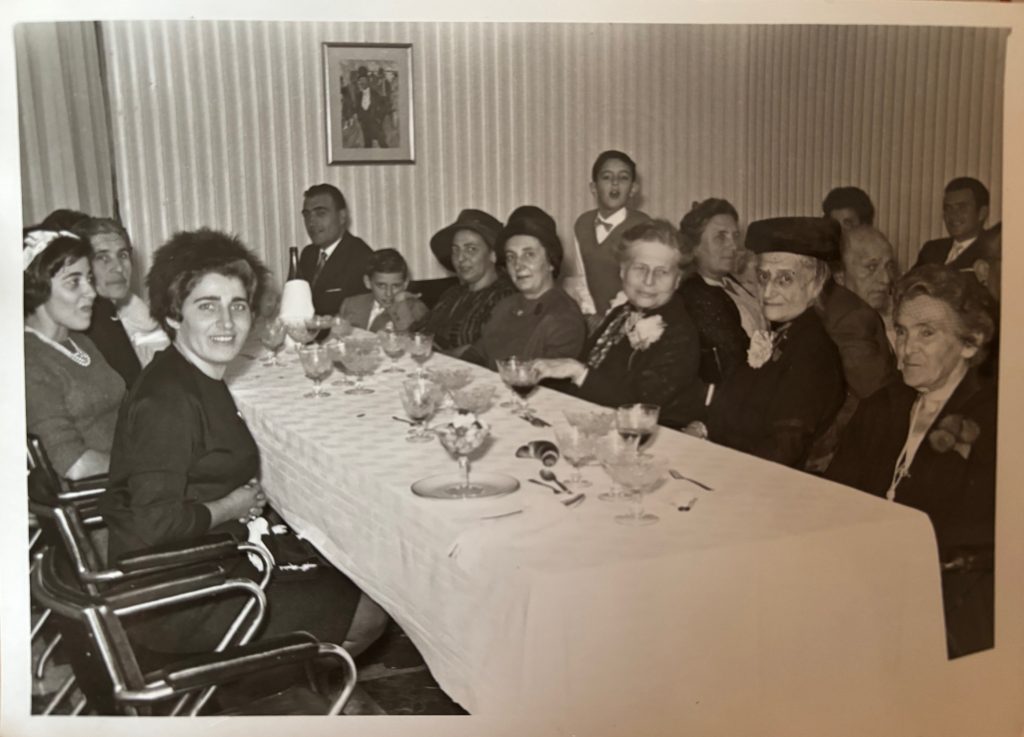
The villa was a place of refinement and warmth. Sunday lunches were sacred: the family dined at noon, and Giovanni would change into his white jacket, gloves, and tie to serve Bona at 1 p.m. Licia recalled helping the Countess in her final years, keeping her company, walking with her, and being by her side when she passed away in her nightgown. “Three is a perfect number,” Bona had said when Licia told her she was expecting her third child.
Even today, Licia and her children visit Bona’s grave at the Cimitero delle Porte Sante, just below San Miniato. Her connection to the villa and its people remains unbroken. She showed us cherished items from the Signorina’s living room—a lamp, a chair, a table—and books, including Count Mario’s father’s spiritual testament, a copy of which is now preserved in the Syracuse archives.
Villa Rossa has nurtured remarkable lives. Licia spoke of a boy who lived in the villa in the apartment once occupied by the British commander. After losing his mom at a young age he was raised alongside Paolo and went on to a successful career at Nuovo Pignone. “Some singular people came out of this villa,” she said, her voice full of pride.
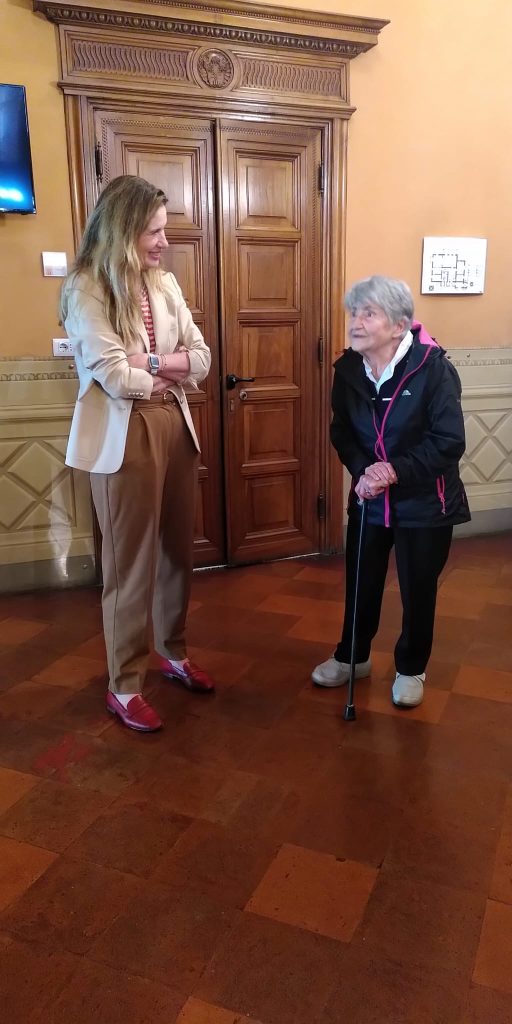
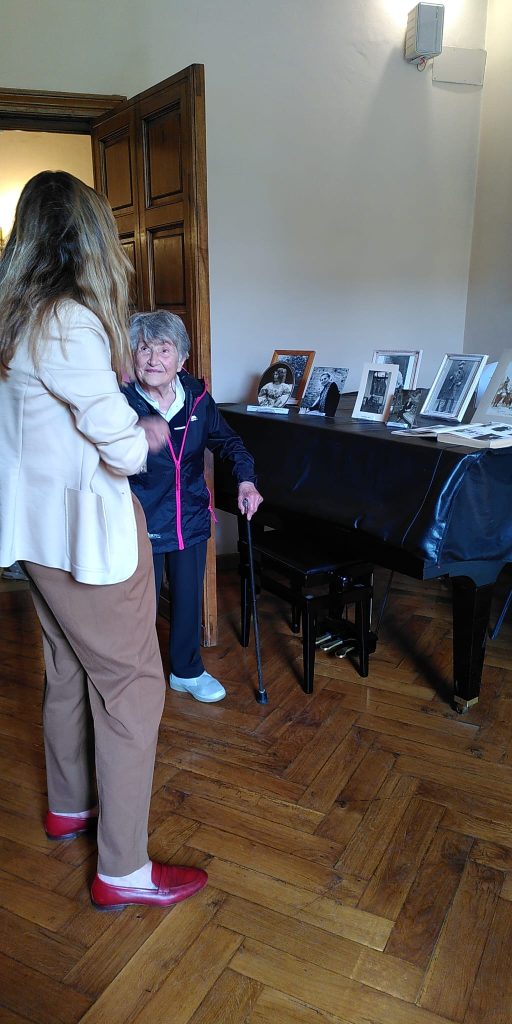
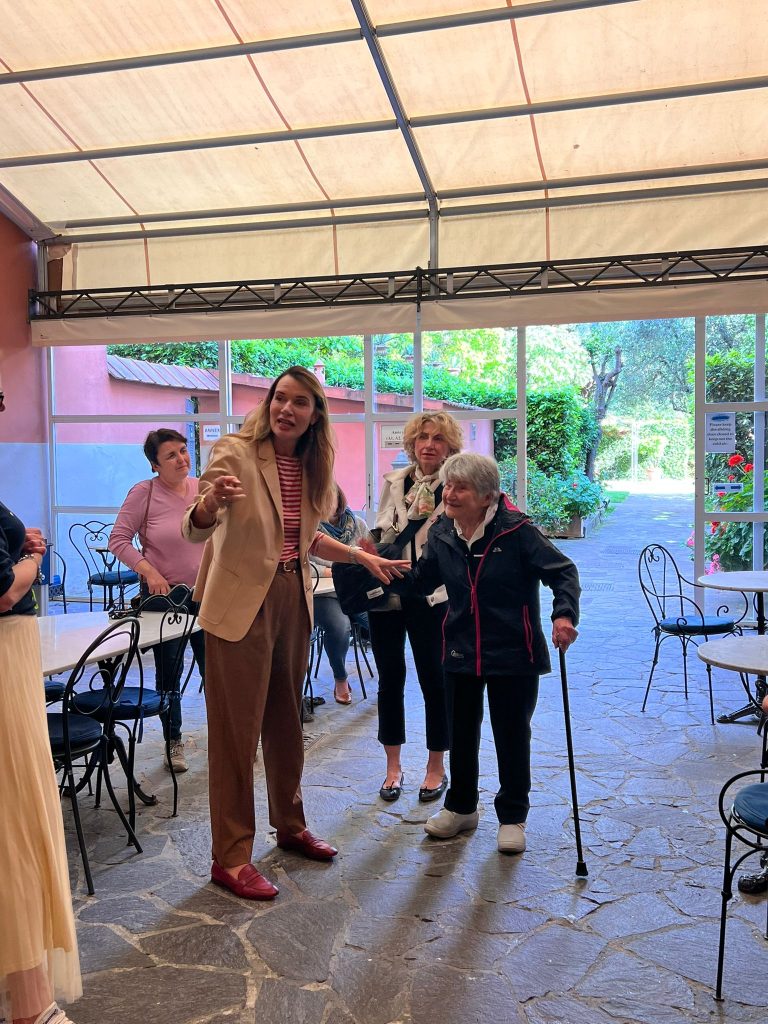
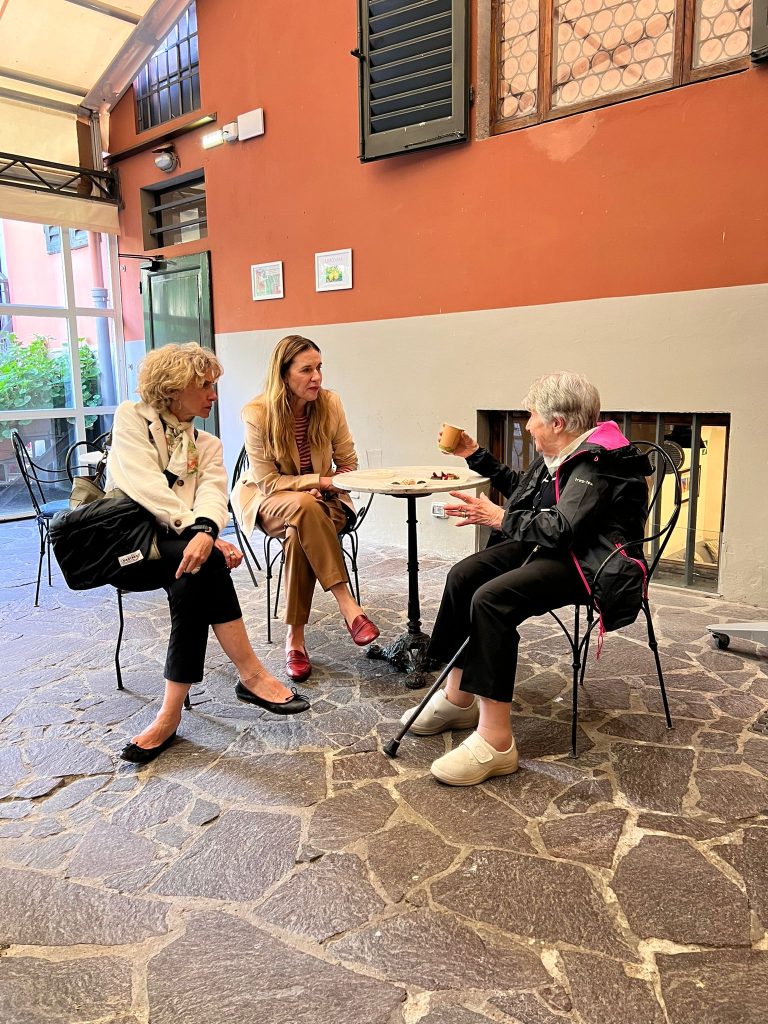
As Licia walked through the halls of Villa Rossa once more, memories flooded back. The walnut dining room, now a classroom, the offices where Donatello once lived, and the echoes of a family that shaped her life. Her visit was not just a return—it was a tribute to a legacy of love, loyalty, and the quiet grace of lives intertwined with history.

